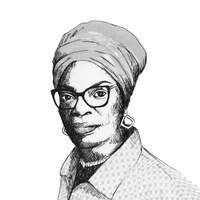Access strengthens governance with trustee and investment committee appointments
Access strengthens governance with trustee and investment committee appointments

Asher Craig leads the Pathway Fund - a funder set up to tackle racial injustice in how money flows into social investment. Pathway was created to do things differently: to shift power, build infrastructure where it’s lacking, and get resources into the hands of Black-led and other underrepresented community organisations.
“For decades, the chronic underfunding of Black and racially marginalised communities has been endlessly documented. But ironically, that very visibility has helped entrench the discrimination and systemic racism we’re trying to dismantle.”
“The real challenge lies in the decision-making structures and the very fabric of our financial institutions. The power imbalance means that even when the data clearly shows where the need is, the funding doesn’t follow.”
“Pathway was set up to tackle that imbalance directly and boost investment in Black-led organisations. We’re building an endowment – a long-term fund whose returns will support organisations year after year. It gives us the freedom to take risks, offer interest-free loans, and back purpose-driven businesses that traditional funders would typically overlook. Just because they don’t meet conventional criteria doesn’t mean they shouldn’t get support.
“But shifting the system means rethinking who’s in the room and who gets to make decisions. If investment committees remain mostly white, the outcomes won’t change. Communities need to be at the table. We need to hear directly from people about what they need, what the challenges are, and whether the programmes we’re piloting are actually working.
“Access has been a critical partner in making Pathway possible from day one. They haven’t just supported us with funding but they’ve opened doors to rooms that are usually closed to people who look like me.
“Access has consistently championed long-term investment in social enterprises, community businesses, and other social purpose organisations that have historically been excluded. That includes the Community Enterprise Growth Plan, which helped unlock dormant assets for marginalised communities.
“Without their support, we’d still be stuck making the case for equitable funding. Instead, we’re already on the path to making real change.
“One of our key strategies is taking time to build relationships and trust — and that looks different in every region. What’s happening in London won’t be the same as in the West Midlands. A major challenge is directing investment to the right places, especially where there’s been little local development.
“People are often working in silos, and in some areas, relationships between local authorities and communities are broken. So we’re having to start from scratch — with listening events and a rollout of Pathway programmes, funding, and resources tailored to each area’s specific needs.”
“In Liverpool, I saw real trust in action. A white-led organisation, Kindred, and a Black-led group, Blast, were working together as true partners. Black-led social enterprises in the room said, ‘We’re only working with Kindred and Blast because they listen, they hear us, they see us, they fund us, and they stay with us even after the funding is done.’”
“One of the biggest challenges ahead is the growing backlash against EDI. I’m asking people to lean into this work, not shy away from it. We have to remember why we’re here: to support our communities.”
“The scale of the challenge is massive, and over the next few years, we’ll need more resources and funding. I’ll be out there knocking on doors, because that’s what it’ll take to move the needle.
“But the long-term goal isn’t to depend on Access forever - it’s to transform the system so support like theirs becomes unnecessary. I want to see more community finance, more Black-led CDFIs, and more resources flowing directly into communities that have been overlooked for too long. We don’t need more performative allyship. We need structural change.”
Next up: Read the next piece in our Reflections on Change series